This week’s news includes: John Waters’ commencement address, Baltimore City Schools vs. Comcast, struggles with COVID-19 testing, and more reporting from Baltimore Beat, Salon, Technical.ly Baltimore, and others.


This week’s news includes: John Waters’ commencement address, Baltimore City Schools vs. Comcast, struggles with COVID-19 testing, and more reporting from Baltimore Beat, Salon, Technical.ly Baltimore, and others.
Artists, you are the cure… the only people that can inspire the world to notice and then alter its destructive behavior. You’re not the new normal, you’re the vaccine.
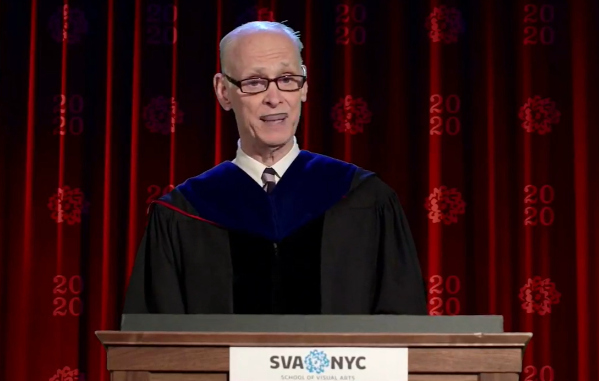
John Waters says in commencement address he has found the cure for COVID-19
by Ed Gunts
Published May 27 in Baltimore Fishbowl
Excerpt: Filmmaker John Waters announced today that he has found the cure for COVID-19.
In a virtual commencement speech to the graduating class of 2020 from School of Visual Arts New York City (SVA), Waters revealed that the solution to ending the pandemic has been right out in the open all along:
“Artists, you are the cure… the only people that can inspire the world to notice and then alter its destructive behavior,” he announced. “You’re not the new normal, you’re the vaccine.”
All that’s needed, he said, is for the Class of 2020 to realize the power it has to change the world. “You have to light the first spark. The COVID-19 Commandos. That’s you. Congratulations. And now it’s time for action.”

My baby’s being born same time my man is murdered — the beginning and end
by D. Watkins
Published May 23 in Salon
Excerpt: It’s a little after 8 p.m. on January 14, 2020, and I’m posted up at a table at Motor House, the studio/bar where my one of my best friends, photographer Devin Allen, hosts the monthly Artist Talks series. I keep an eye on my phone waiting for a text from my wife Caron as I wait for my turn on stage, while friends and friends of friends bring rounds of drinks around. The mood is celebratory but we aren’t celebrating anything specific, exactly. It’s not a particularly special day in America, but every day above ground in Baltimore is kind of special. We’re a relatively small city with an extremely high murder rate, and we had just closed out 2019 with 348 homicides.
At this event, Devin interviews local creators on stage over drinks. A group of artists, including me, had been invited that night to recap the work we did in 2019 and share what we were planning for 2020. Liquor flows in streams running in every direction at this event, so I couldn’t ask my pregnant wife to endure that. The plan was for me to hit the venue, give my portion of the talk and, by the time I was set to leave, probably get a text from her telling me, hey baby, bring a shrimp sub home. It was getting close to her due date, and I wanted to be home with her.
“Baby, text me if you want something else to eat, a shrimp sub or something,” I had said to her on the phone as I made my way to the front door of our home. “The event shouldn’t be that long. I’ll be right home afterwards.”
“Don’t drink too much,” she warned.
I probably should’ve stayed home, though. We didn’t know that she was already in labor.
This is not just a Baltimore fight, this is a Cleveland fight, a Philadelphia fight, West Virginia fight
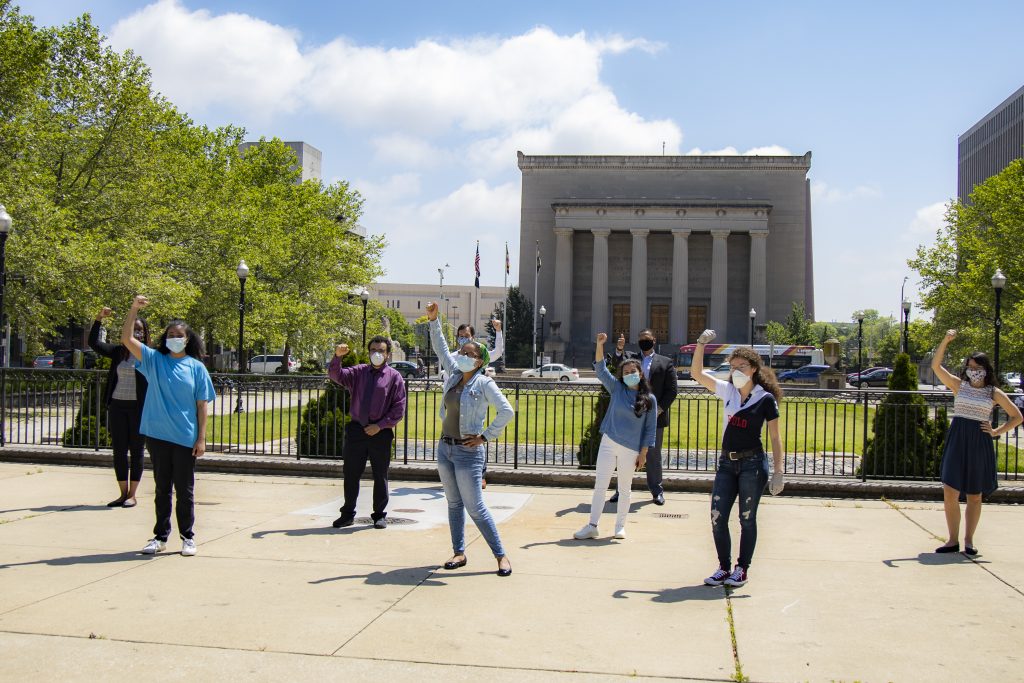
Baltimore City Students Demand Comcast Increase Internet Speed During Pandemic
by Jaisal Noor
Published May 26 in Baltimore Beat
Excerpt: Led by student group Students Organizing a Multicultural and Open Society (SOMOS), Baltimore City Public Schools students held a socially-distanced press conference in front of City Hall on May 26. They demanded internet service provider Comcast make high speed internet access available to students across the country during the COVID-19 pandemic.
“In Baltimore alone, 40.7% don’t have broadband access, the third worst connectivity rate for cities with over 500,00 people,” said Baltimore City College High School junior Kimberly Vasquez as three Baltimore lawmakers stood at a distance behind her wearing masks.
Known as “the digital divide,” low income and communities of color are able to access high speed internet at far lower rates than wealthy communities. Around 200,000 Baltimore households with school-aged children lack access to high speed internet or a computer, a May 2020 Abell Foundation report found.
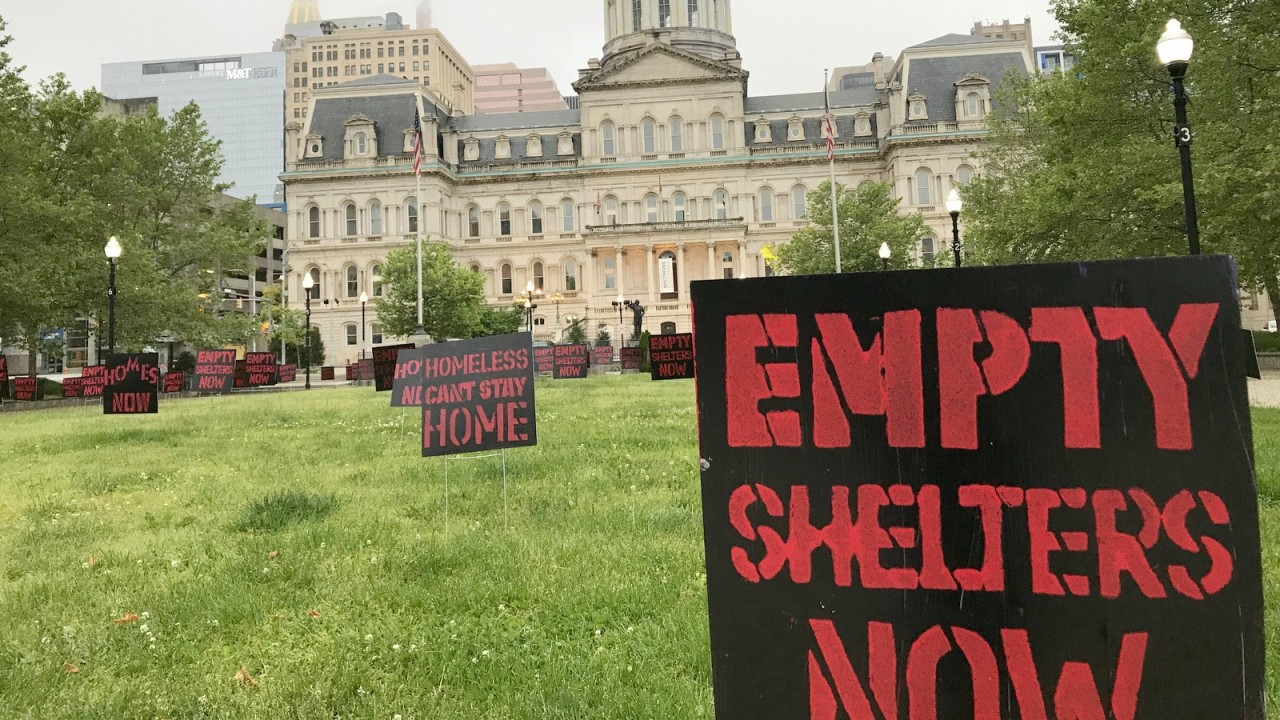
Activists again call on the city to empty shelters to protect the homeless
by Louis Krauss
Published May 27 in Baltimore Brew
Excerpt: Dozens of signs were erected in Baltimore’s War Memorial Plaza this morning demanding that Baltimore clear out its shelters to protect homeless people from Covid-19.
“Empty Shelters Now” and “Homeless Can’t Stay Home” say the red-and-black signs in front of City Hall.
The signs were placed there by Housing Our Neighbors and the Fair Development Roundtable, advocacy groups that have been pushing Mayor Bernard C. “Jack” Young to move people out of congregate living spaces and develop affordable housing for city residents.
Last month, the city did move people out of its main Weinberg shelter on the Fallsway after an outbreak there and has placed some of the homeless in motel rooms.
But nearly 300 people are currently being housed at two former schools, Pinderhughes and Kipp Ujima Village Academy, where they are unable to maintain safe social distancing, according to activists.
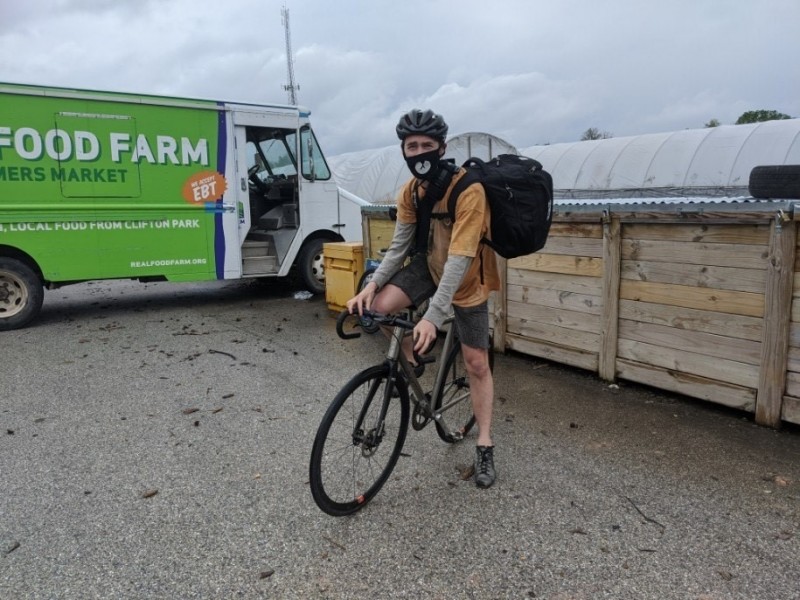
Real Food Farm and Bikemore Hit the Streets Delivering Meals to Older Adults
by Megan Sayles
Published May 26 in Baltimore Magazine
Excerpt: Normally, as spring spills into summer, Real Food Farm fires up its farmers market sales. But in the wake of the coronavirus, that endeavor has halted. Instead, the Civic Works program, which operates two farm sites in Northeast Baltimore, has pivoted to supporting older adults across the city.
When lockdown measures and social distancing practices were first enforced, food and farm manager Gwen Kokes—along with director of elder services, Lauren Averella—decided to put the food they had to good use.
“I knew our older adults were going to be anxious leaving their homes,” Kokes says, “so Lauren and I made deliveries to apartment complexes.”
Now eight weeks into the initiative, Real Food Farm continues to donate 3,000 pounds of food each week to seniors free of charge. Taking their commitment to sustainability and building greener neighborhoods a step further, the team at Civic Works reached out to their friends at bicycle advocacy organization Bikemore to make deliveries more environmentally friendly.
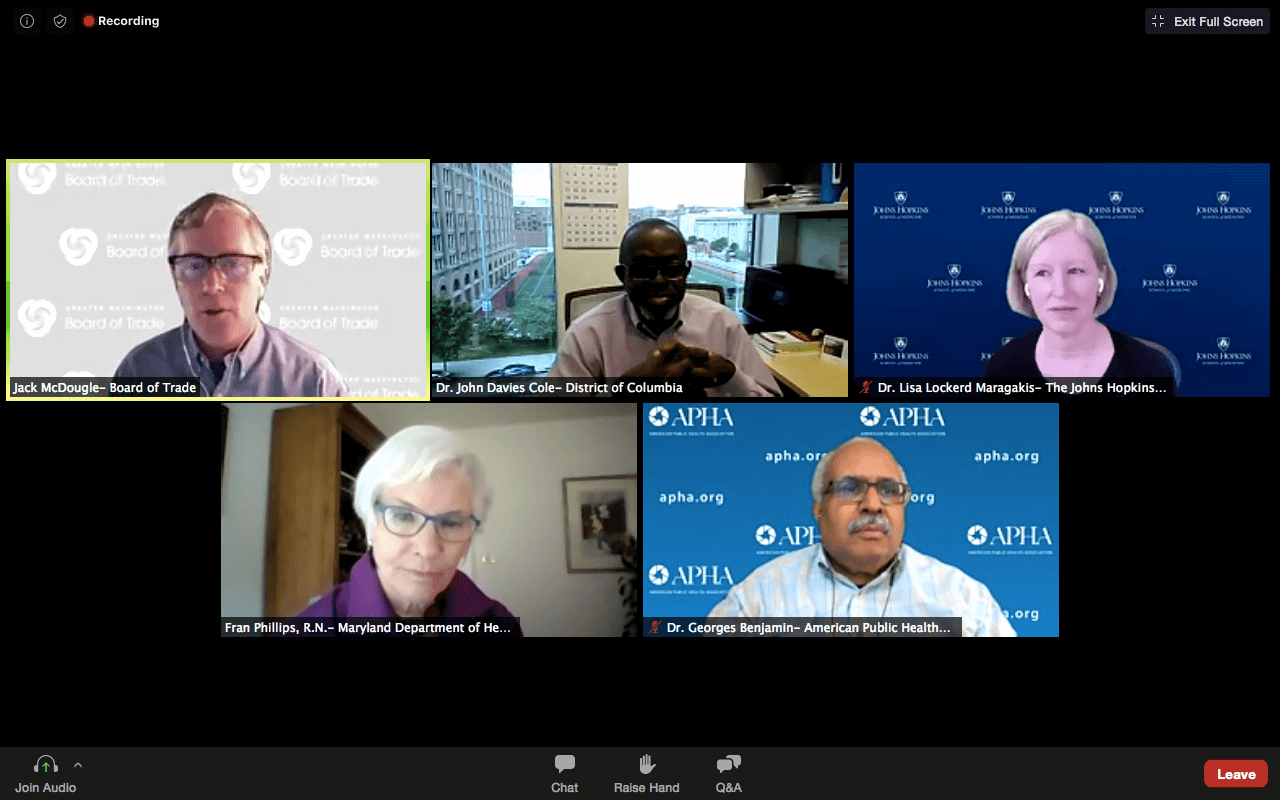
Testing ‘Remains a Struggle,’ State’s Public Health Chief Concedes
by Bruce DePuyt
Published May 27 in Maryland Matters
Excerpt: Despite efforts to protect nursing home residents from COVID-19 by limiting access to essential staff, “the virus is getting in,” the state’s deputy secretary for public health said on Tuesday.
“That is because asymptomatic people, before they have any symptoms, are infectious, [they] are carriers,” Fran Phillips told a Greater Washington Board of Trade briefing on the novel coronavirus.
More than half of Maryland’s 2,217 reported COVID-19 deaths — 1,143, or 52% — come from the state’s congregate facilities, its nursing homes, assisted living facilities and group homes, according to the Department of Health.
The findings reinforce how easily the virus can be spread — and how important it is to protect the elderly and those with underlying health conditions, for whom COVID-19 is particularly dangerous.
As creatives, I think we should be thinking about how are we making things for our people ... For humanity.”
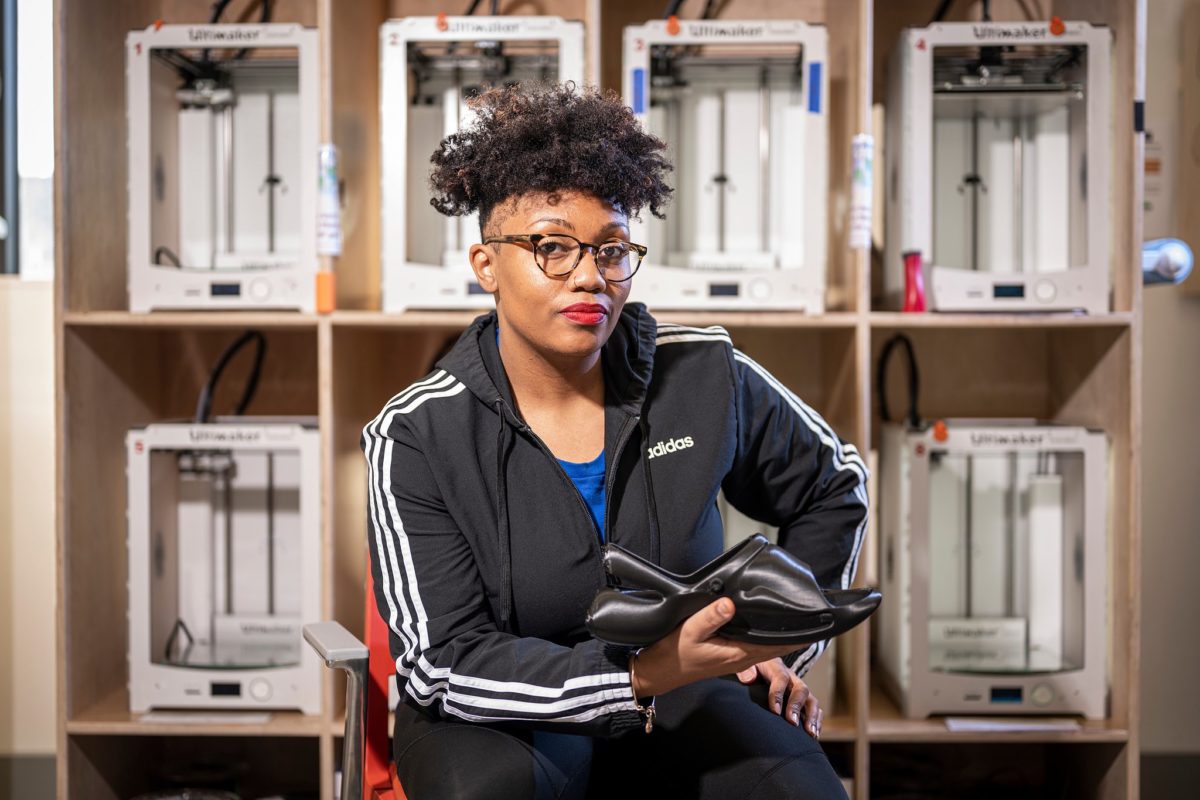
Makers for Humankind creates shoes for essential workers and the homeless
by Stephen Babcock
Published May 22 in Technical.ly Baltimore
Excerpt: When it comes to essential workers, most of the products that are being devised in the pandemic are for faces and hands. After all, these are the parts of the body that need protection from COVID-19 transmission during the pandemic.
Mikea Hugley is thinking about another reality: Healthcare workers and those who work in retail are on their feet for many hours.
“Our target market are essential people in their communities, the ones that are always on their feet serving others,” said Hugley, a 2019 graphic design graduate of MICA.
Hugley brought a passion for product design and a sense of mission to Makers for Humankind. The company’s product is footwear that functions as an “all-in-one” shoe kit with a weatherproof sock and thick sole as well as screws and straps that make the parts interchangeable. As part of the company’s model, it is committing 10% of proceeds to support the unhoused population.
“I believe my brand will be global,” Hugley said. “As much as it’s for essential workers, it’s also for people that live in different countries that don’t have access to footwear.”
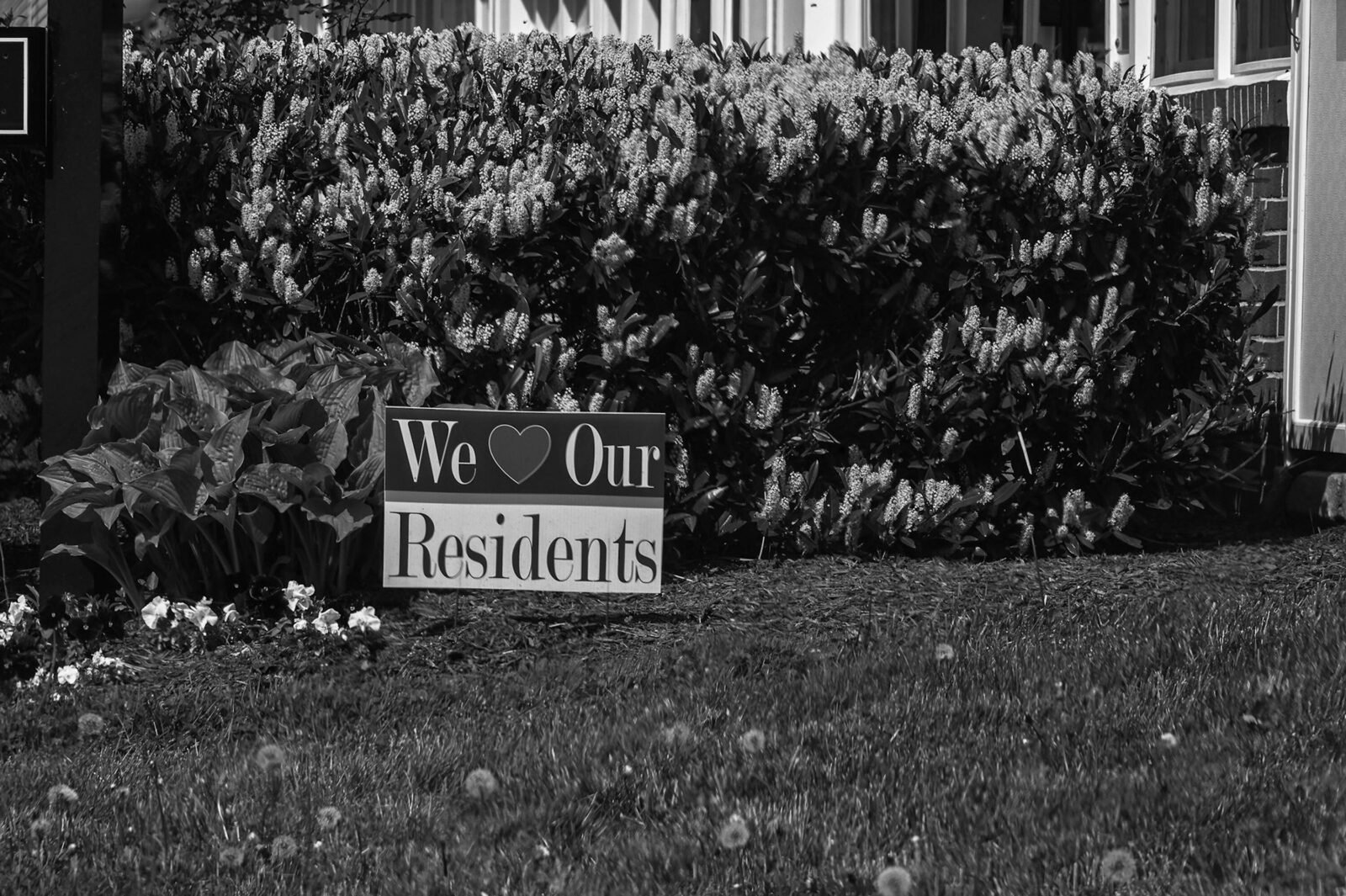
Rent Is Still Due in Kushnerville
by Alec MacGillis
Published May 21 in Pro Publica
Excerpt: It was the day after April rent was officially due — April 6 — and Kevin Maddox was officially late. The week before, he had lost both of his jobs within a few days of each other. Both were at food-service warehouses. “My job is to get the food to the restaurants, and if no one’s going to the restaurants, then I’m out of a job,” Maddox said. So he filed for unemployment and now stood outside his small rental row house just beyond the Baltimore city line watching his young daughter as she rode around in her plastic car.
His spirits were relatively high, all things considered. Both employers told him they’d take him back, as soon as things opened back up. That maybe helped explain why he still wore the cap from one of the warehouses: Maines Paper & Food Service Inc.
“This is tough,” he said. “It’s tough. But I’m hoping it’ll be over in a month. They say it’s supposed to be over in a month.”
More than a month later, it is not over. And there have been few better places to track the economic unraveling and social stress of the pandemic lockdowns than the large housing complex where Maddox lives, Dutch Village, and a handful of other complexes in the Baltimore area owned by the same company. That’s partly because these complexes are home to exactly the sort of workers who have been most affected by the crisis: both those whose jobs are likeliest to have been eliminated — casino workers, food-service workers, hotel housekeepers — and those whose jobs are likeliest to have been plunged into at-risk overdrive — Amazon warehouse workers, delivery drivers, nursing home aides, cleaners.

How Dare Trump Come to Baltimore?
by Maya Rockeymoore Cummings
Published May 25 in Medium
Excerpt: It’s Memorial Day weekend, and while many of us will acknowledge the holiday with somber remembrance, Donald Trump will use it as yet another insincere photo opp; this time in Baltimore with a scheduled visit to Fort McHenry National Monument and Historic Shrine. We don’t want him here.
Little less than a year ago, Trump insulted my late husband, Elijah Cummings, calling him a “brutal bully” for calling attention to the humanitarian crisis at the southern U.S. border and noting the inhumanity of separating children from their parents. Trump then went on to call our city of Baltimore a “disgusting, rat and rodent infested mess” with conditions “far worse and more dangerous” than those at the southern border. I have no doubt his hateful and vitriolic rhetoric hastened my husband’s death just three months later.
So how dare he come to Baltimore now? In my town, those are fighting words. And I’m ready to fight for my husband’s sacrifice, for the people of Baltimore, for our democracy, and for our future. That’s why I’m running for Congress to represent Elijah’s former seat in the U.S. House of Representatives. I’m not afraid of Donald Trump and will stand up to him and be an advocate for my community, just like Elijah was.
Read more:
Mostly maskless, scores turn out for Trump visit to Baltimore
by Brew Editors
Published May 26 in Baltimore Brew
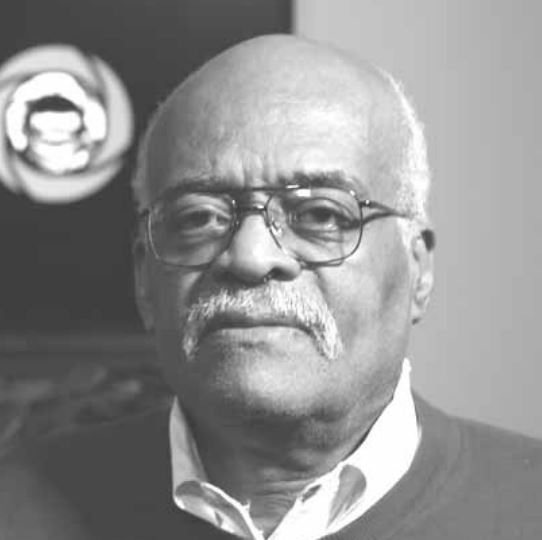
Census 2020: You Count, So Be in That Number
by Ralph E. Moore Jr.
Published May 25 in AFRO News
Excerpt: Every 10 years every person in the United States and its territories must be counted; that’s the law. The counting has been done since the year 1790 or 24 times up to now. So what’s the big deal about the Census and why is it important?
The counting means more than many of us realize. The numbers are important when the government decides on a new supermarket in the neighborhood or whether a school stays open or is closed. The Census count means dollars for daycare centers and the WIC (Women, Infants and Children Supplemental Nutrition) Program for moms and babies; it will help decide if and where hospitals and senior centers will be built. This is the nuts and bolts of how things work: numbers and words—numbers from the Census and words on budgets, plans and laws.